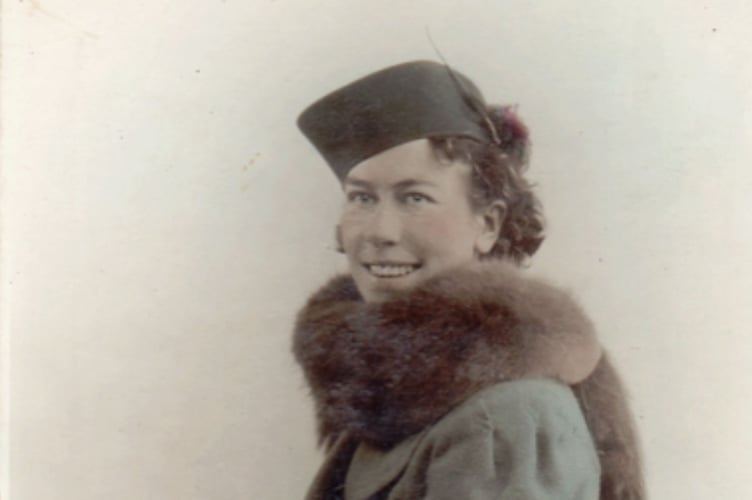ON Friday, May 24 our very own accomplished speaker, presenter and committee member Robin Blyth-Lord gave us the pleasure of an impeccably researched and illustrated piece of social history of the life and times of the diarist Ivy Cox.
In his own words Ivy was a “Devon woman neither famous nor infamous, who lived through the 20th and 21st centuries”. She did however keep both a detailed diary and was exceptional in her ability to take photographs!
Ivy was born in 1913 to Mr and Mrs Hunwicks, a serving naval officer in Plymouth. After a posting to Malta, Herbert Hunwicks was sent to Scotland with the family, returning to Devonport after the First World War.
Robin was able to bring the family and the realities of family life, through Ivy’s own reminiscences and his detailed research into the conditions of housing in the area, together with the context of the social hierarchy within which Ivy grew up.
We reflected many times upon how far removed these were from the current conditions of the present day.
Health, education, nutrition and safety conditions were very different for children living through this period, for example Ivy recalled that dieting was unheard of. They were fed on fat bacon, bread and dripping, tripe and onions and homemade pasties once a week. Sometimes there was stuffed Bream, baked in the oven and always a lot of salted cod, or Toe Rag as they called it.
An allotment provided fresh vegetables and a variety of staples were “enjoyed” which would be an enlightenment to the current generation.
Robin covered in some detail the local sewage system and her education opportunities, which were supplemented by her regular employment by the age of ten to deliver milk around the village of Lower Hooe.
At the age of 15, Ivy and her friend Dorothy saw an advertisement for seasonal darkroom workers at Stuarts Photo Services in Notte Street. Stuarts used to process films that were handed in to chemists as well as their own photos from their studio in Union Street and they also took and printed a wide range of local postcards.
This provided the springboard for her subsequent jobs and skill development as an operator of the camera and provided her unique access to photos to document her life.
In 1936 she married Bill Cox, a private in the Suffolk Regiment. Married life together in Plymouth only lasted six months as Bill was posted to Malta and two years later Ivy travelled out to join her husband. The imminent outbreak of war meant a return to Devonport and subsequent postings and attempts to track down her husband from continued troop movements. He returned home in a sorry state after the evacuation from Dunkirk.
The tenor, detail and depth of her records provided a full inventory to her adventures and the ravages of wartime postings and the day-to-day struggles to provide adequate (bug-free) accommodation, food and clothing, enabled the audience to share and appreciate the often-huge struggles of day-to-day life during and after the war.
In her final years, Ivy took a flat in sheltered housing in Plympton where in 2003 she was interviewed for the book Ivy’s Story. She said: “We have come a long way since the war years when if we needed a new coat we bought a white blanket from Goulds and made one up. I now have two grandsons, Steven and Nick, a granddaughter Jenny and a great granddaughter, Kelly, who is fourteen now and they give me a lot of pleasure. I have had many adventures and much fun.” She died in 2012.
This was throughout a moving, rich and humorous narration of one lady’s lifetime which allowed us to visualise and share her unexceptional, but nevertheless, fascinating experiences throughout a period which has still many resonances for the audience from their own and their parents’ lifetimes.
In a period when we are asked to remember those who served, it is timely not to forget our civilian and local social history. Thank you Robin!
Thorverton History Society





Comments
This article has no comments yet. Be the first to leave a comment.